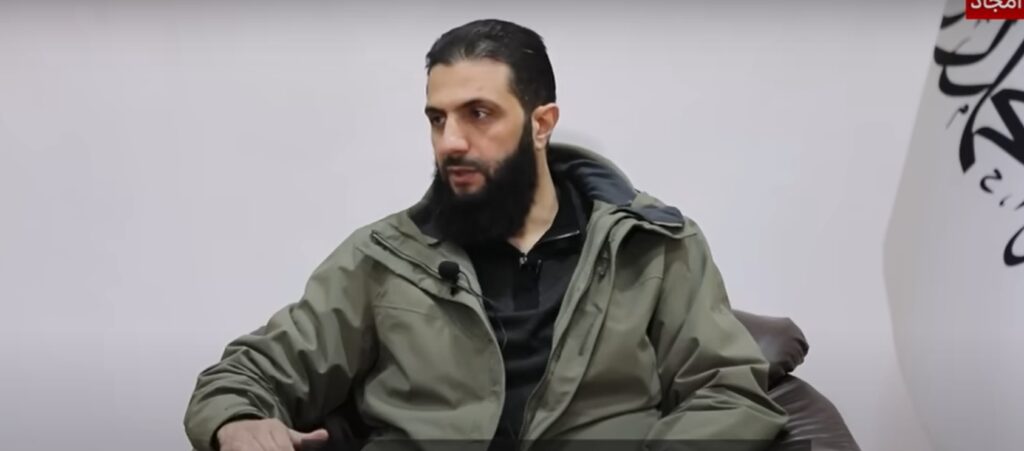The Enigma of Abu Muhammad al-Jolani
The Israeli intelligence system is working to understand Abu Muhammad al-Jolani, the leader of “Hayat Tahrir al-Sham” who overthrew Bashar Assad’s regime and now controls large parts of Syria.
Senior security officials in Israel describe him as a “wolf in sheep’s clothing”—a terrorist who might eventually act against Israel.
Israeli Foreign Minister Gideon Sa’ar remarked on December 27 about the new regime:
“This is a terrorist gang that was previously in Idlib and took control of the capital Damascus and other areas. The world would very much like to see a new and stable government because countries want to return refugees to Syria. But that is not the case. There are battles with the Alawites in the coastal strip. There are explicit threats by Erdogan to eliminate Kurdish autonomy, and there is harassment of the Christian community in Syria. This is an Islamist government that will try to achieve full control over all of Syria.”
However, the Biden administration swiftly sent a high-level delegation to Damascus to meet al-Jolani and removed the $10 million bounty on his head.
According to political sources in Jerusalem, the U.S. has recommended that Israel consider opening communication channels with Syria’s new regime.
Al-Jolani’s Actions and Statements
To date, al-Jolani has refrained from military action against IDF forces despite the expansion of the buffer zone in the Golan Heights and Israel’s massive bombings that destroyed Bashar Assad’s weapons arsenal.
His responses have been limited to filing official complaints with the UN Security Council.
In interviews with foreign media, al-Jolani stated that Israel has no role in Syria after Iran and its affiliates were expelled following Assad’s fall.
Notably, journalists have avoided asking him directly about Israeli bombings, the Gaza conflict, or IDF actions in Lebanon.
In a December 29 interview with Al-Arabiya, al-Jolani claimed:
“Israel was preparing for a large-scale war against Syria. If such a war had broken out, Iraq would have sided with Iran, and Turkey would also have joined, prompting U.S. intervention and attacks on American bases by Iran. The rebellion against Bashar Assad’s regime will bring calm to the region for 50 years and prevent Iran’s plans.”
Israel’s Concerns and Strategy
Israeli political and security officials are focused on preventing Iran’s return to Syria and stopping weapon transfers through Syria to Hezbollah in Lebanon.
While al-Jolani regards Iran and Hezbollah as threats to his rule, he has not ruled out potential diplomatic relations with Iran.
Al-Jolani’s cautious approach extends to Israel. He has not called on Syrians near the Israeli border to oppose IDF operations and has demanded the disarmament of Palestinian factions in Syria.
Stabilization and Recognition
For now, al-Jolani’s priority is stabilizing Syria, gaining Arab and international recognition, uniting Syria’s diverse ethnic groups under his rule, and lifting sanctions to revive the economy.
Confronting Israel does not align with his current goals, particularly as his forces lack heavy weaponry, most of which Israel destroyed to prevent it from falling into his hands.
Israel’s current approach is to “respect and suspect” al-Jolani, maintaining no communication channels with him.
The U.S. has yet to lift economic sanctions on Syria, leaving the matter to the incoming Trump administration.




